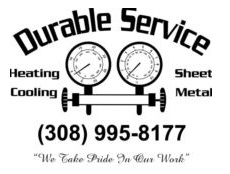
We spend a good majority of our time inside. As a matter of fact, the Environmental Protection Agency (EPA) has approximated being within a building makes up 90% of our days. However, the EPA also has found your indoor air can be three to five times worse than outdoors.
That’s due to the fact our residences are tightly sealed to boost energy efficiency. While this is great for your energy costs, it’s not so fantastic if you’re a part of the 40% of the population with respiratory allergies.
When outside ventilation is insufficient, pollutants including dust and volatile organic compounds (VOCs) might get stuck. As a consequence, these pollutants can aggravate your allergies.
You can improve your indoor air quality with crisp air and routine dusting and vacuuming. But if you’re still having issues with symptoms when you’re at your residence, an air purifier may be able to provide relief.
While it can’t eliminate pollutants that have settled on your couch or carpet, it may help purify the air traveling around your home.
And air purification has also been scientifically confirmed to help lessen some allergic symptoms, according to the American College of Allergy, Asthma and Immunology. It can also be appropriate if you or a loved one has a lung condition, like emphysema or COPD.
There are two options, a portable air purifier or a whole-home air purifier. We’ll discuss the differences so you can figure out what’s right for your home.
Whole-House Air Purifier vs. Portable Air Purifiers
A portable air purifier is for a lone room. A whole-house air purifier works with your HVAC unit to purify your entire home. Some types can purify by themselves when your home comfort unit isn’t running.
What’s the Best Air Purifier for Allergies?
Go after an option with a High Efficiency Particulate Air (HEPA) filter. HEPA filters are used in hospitals and deliver the best filtration you can buy, as they eliminate 99.97% of particles in the air.
HEPA filters are even more powerful when used with an ultraviolet (UV) germicidal light. This powerful mixture can wipe out dust, dander, pollen and mold, all of which are general allergens. For the ultimate in air purification, consider a unit that also has a carbon-based filter to eliminate household smells.
Avoid buying an air purifier that generates ozone, which is the top component in smog. The EPA cautions ozone might worsen respiratory problems, even when released at small amounts.
The Allergy and Asthma Foundation of America has made a checklist of questions to ask when buying an air purifier.
- What can this purifier extract from the air? What doesn’t it take out?
- What’s its clean air delivery rate? (A bigger amount means air will be cleaned more rapidly.)
- How frequently does the filter or UV bulb need to be switched]? Can I do that on my own?
- How much do new filters or bulbs cost?
How to Reduce Seasonal Allergy Symptoms
Want to receive the {top|most excellent|best] results from your new air purification equipment? The Mayo Clinic recommends completing other procedures to reduce your exposure to things that can trigger seasonal allergies.
- Stay indoors and keep windows and doors sealed when pollen counts are high.
- Have someone else trim the lawn or pull weeds, since these jobs can trigger symptoms. If you are required to do this work alone, you may want to consider using a pollen mask. You should also rinse off immediately and put on new clothes once you’re completed.
- Avoid drying laundry outside.
- Run your air conditioner while indoors or while driving. Consider installing a high efficiency air filter in your house’s heating and cooling system.
- Equalize your house’s humidity levels with a whole-house dehumidifier.
- Hardwood, tile or linoleum are the ideal flooring types for lowering indoor allergens. If your residence has carpet, add a HEPA filter on your vacuum cleaner.
Let Our Specialists Handle Your Indoor Air Quality Needs
Ready to progress with installing a whole-house air purifier? Give our specialists a call at 308-995-8177 or contact us online to get an appointment. We’ll help you locate the best system for your residence and budget.

